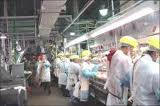links cidpusa web
- Heart
- Autoimmune anemia
- Autoimmune Ear
- Autoimmune Thyroid
- Autoimmune Muscle
- Autoimmunity summary
- Autonomic Small Fiber
- Small Fiber neuropathy
- neurological effects of CIDP
- Colostruma
- Lupus page
- SLE Home page
- Caveman Diet
- Homocysteine Lowering diet
- Iodine deficient diet
- Epilepsy diet
- Food additives
- No artificial sweetener in diet
- Vinegar Benefits'
- Loss of apetitite
- Breast cancer herbs
- The best lifestyle
- DeTox diet
- Avoid Gum
- Right Fat Diet
- chemicals in French fries
- Electrical Stimulation Therapy
- Magnets and ageing
- Cupping
- Schizophrenia research here to stay
- autoimmune dementia
- End To Parkinson
- Kamut Grain
- LazyEye
- What is Chronic Fatigue
- irregular periods
- Myasthenia diet
- cancer survivor
- Tomato as a medicine
- Prevent Osteoporosis
- Some rheumatic disorders
- Polymyositis
